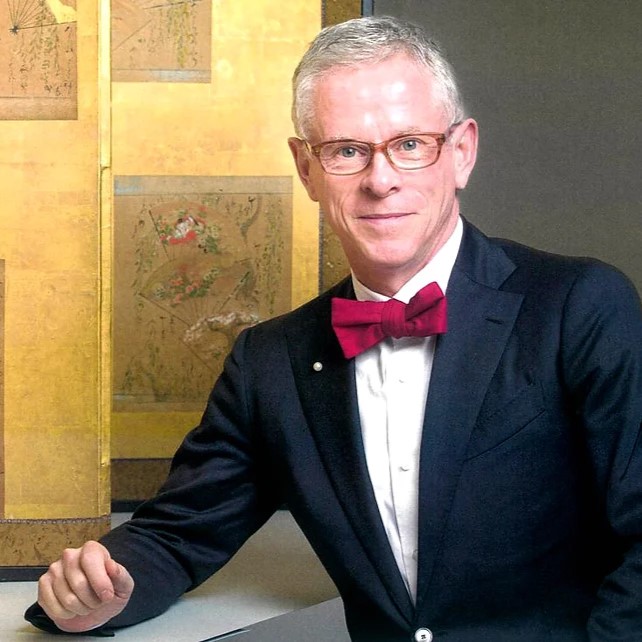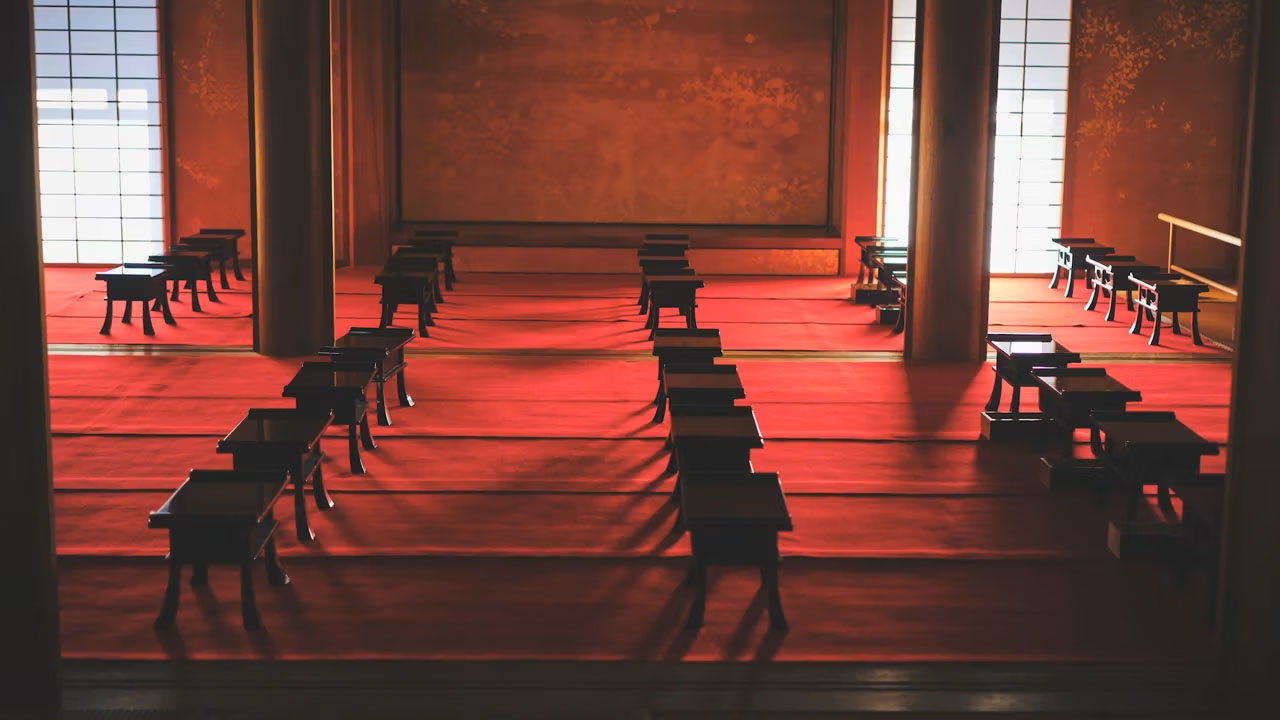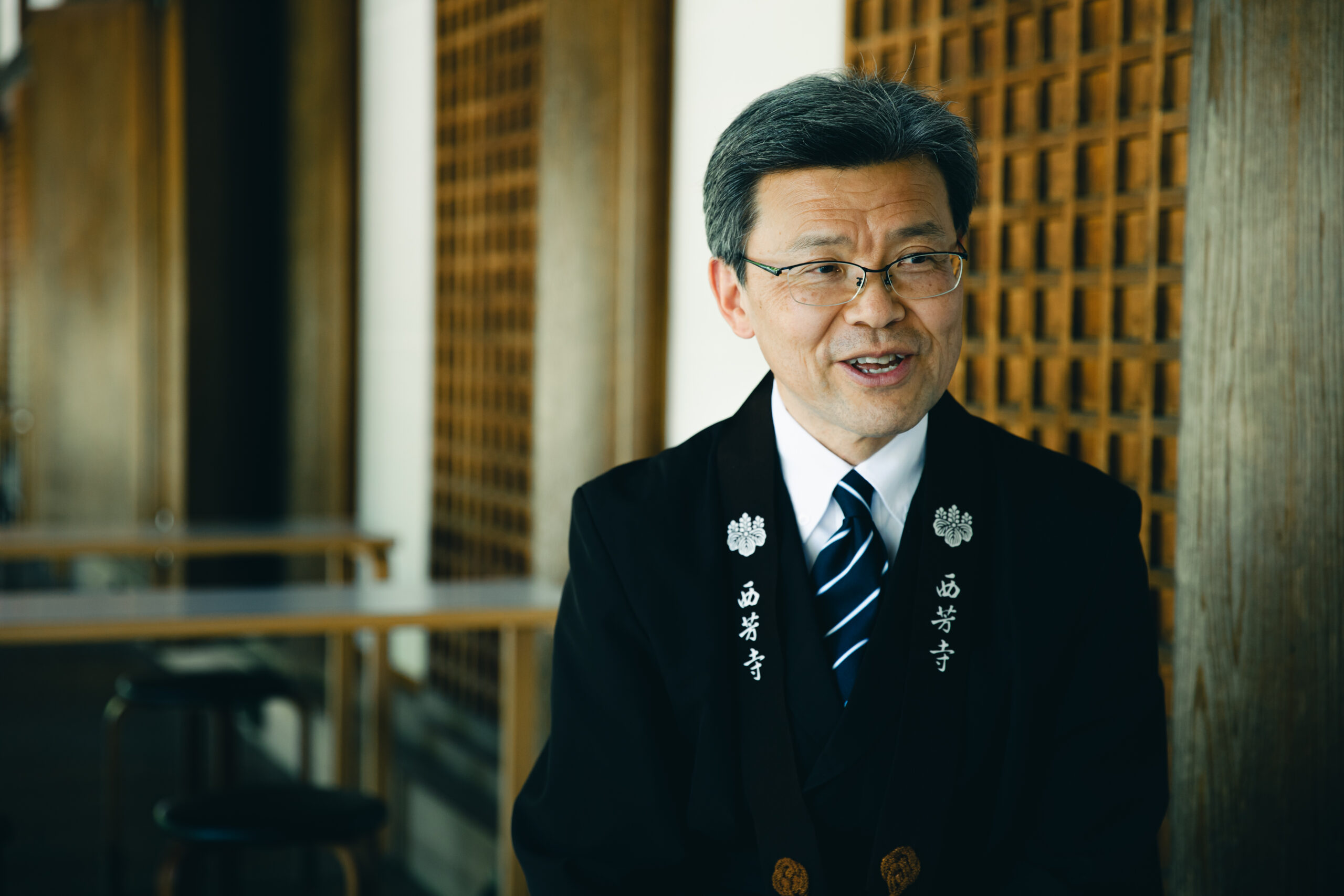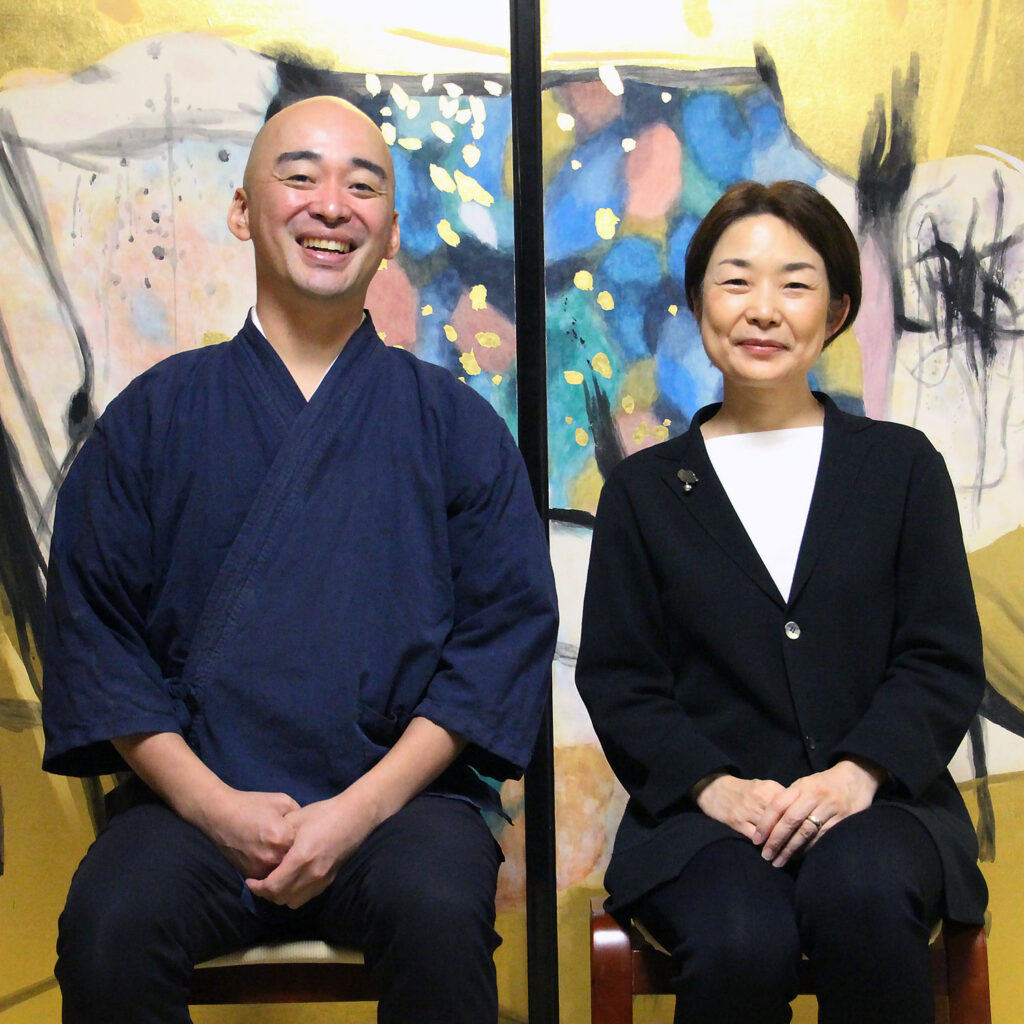2025.8.20
Winds of Gold—A Hundred Views of Saihoji Vol. 16
Peter MacMillan / a translator, scholar, poet
In this series of essays on Saihoji the renowned translator of Japanese poetry and poet Peter MacMillan records his impressions of and reflections on his visits to the garden throughout the four seasons. We hope that through these essays you the readers and fans of Saihoji can feel as if you are also present in the magical garden even when you cannot visit us.
Just Let the Garden Talk!
I have many memories of Saihoji but one of my favorites ones is the time that I was asked to be a guide to a VIP from overseas for an event that was being held at the temple. The whole garden was cleaned, and the special VIP gate was opened, and the mayor of Kyoto and Governor of Kyoto and many dignitaries were all standing ready to greet the VIP visitor on the morning of his visit.
However, the guest finally arrived around 40 minutes late. A program had been planned for the day and around 20 participants from Japan and overseas had already long gathered and were waiting in a special room to comingle with the VIP. The event had to be over within two hours, so I did not have time to walk around the garden with the VIP and explain it to him. Instead, we all headed to the reception area where speeches would be made, and business cards exchanged.
The time to leave came, and I felt so miserable that such an important guest could not see the garden but there was nothing to be done. Sad and frustrated, I set off on the way to the exit with our guest. On the way we stopped for a few minutes and did a short meditation at the entrance to the garden. The VIP was boasting how he had vowed to his wife that he was not visiting any temples. It seemed as if he wanted to avoid at all costs the kind of typical temple-garden experience that Japanophiles love.
When the meditation was over and we were about to leave, the VIP turned to me and asked, “Would it be ok for me to walk around the garden?” I turned around and looked at the 10 people behind me. All of them were nodding heads clearly saying NO, and some were pointing at their wrist watches as there was no time left. Then I heard two or three clear “No’s.” But I thought this was a decisive moment for me to take the law into my own hands to alter the course of the day. I deliberately ignored their negative replies and expressions and turned to the VIP and said, “Why of course you can,” and we started to walk around the garden.
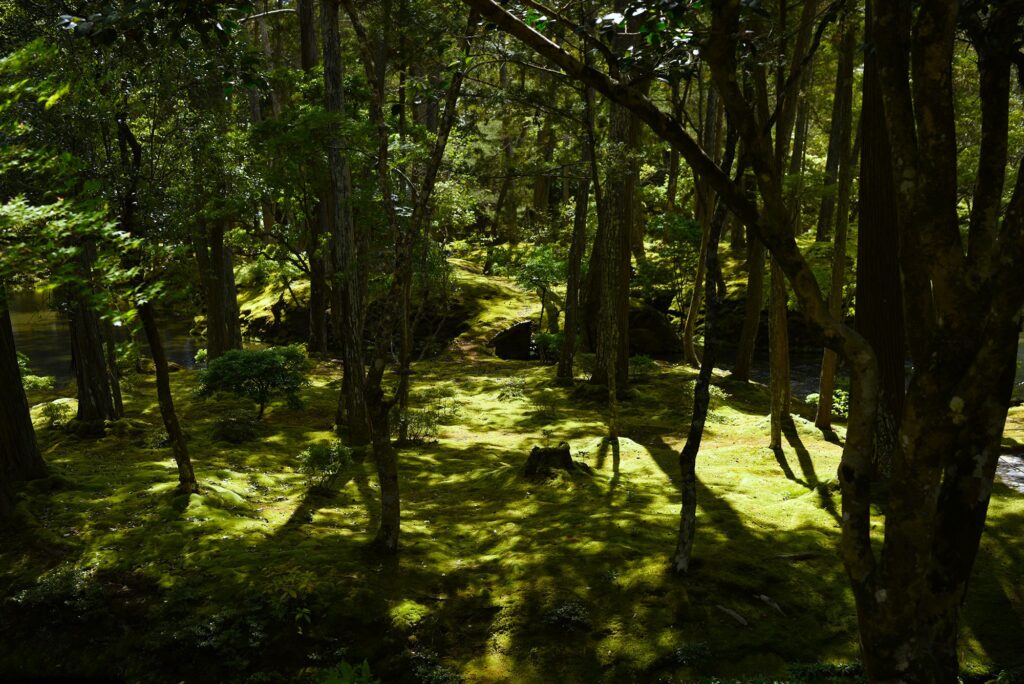
Our guest changed almost immediately upon commencing to walk and the more he walked, the more he became enchanted by the garden. Halfway he stopped to admire the tea house, and the shape of the pond reflecting the Chinese character for ‘heart.’ He moved on fully in the garden and when he came full circle at the end, he confessed that he had been reluctant to visit temples and gardens up to that point, but that from now on he would visit many of them with his wife. His tour of the garden made the whole event successful, and it changed our guest, too. It opened his heart up to the new world of Japanese beauty. That is the power of Saihoji which has the power to change people from all walks of life, and it was so gratifying to see that change take place before my eyes. A great man was changed before our eyes by a great garden.
I learnt from that that it is useless to try to change people’s behavior, but also that we should be more trusting of how great things and places can make great changes in people. And from that point on I decided that when I am guiding the rich and famous around Saihoji, I will try to stay as quiet as possible and just let the garden talk.
Peter MacMillan
Peter MacMillan is a prize-winning translator, scholar, poet, and President of The Moon is a Boat Co., Ltd.
His translation, One Hundred Poets, One Poem Each (Hyakunin Isshu), was published in 2008, winning prizes in both Japan and the United States. After that, he completed an English translation of The Tales of Ise (Ise Monogatari), which was published by Penguin in 2016. He has also published a collection of poetry entitled Admiring Fields.
Awards:
Recipient of the Donald Keene Center Special Prize for the Translation of Japanese Literature
Recipient of the 44th Special Cultural Translation Prize from the Japan Society of Translators
Nominated for the PEN Award for Poetry Translation for the English translation of The Tale of Ise (Ise no Monogatari)
